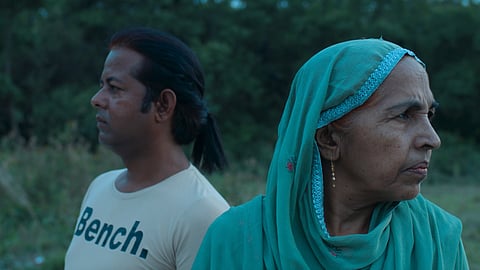
- HOMEGROWN WORLD
- #HGCREATORS
- #HGEXPLORE
- #HGVOICES
- #HGSHOP
- CAREERS
- ABOUT US
- CONTACT US

In 'Babli by Night', debut filmmaker and wildlife conservationist Neel Soni offers something rare: a story of queer resistance and tenderness, told through solitude, silence, and the enveloping stillness of nature. At just 23, Soni has earned a place on the 2025 BAFTA Student Awards longlist, with Babli by Night standing out among over 1,000 submissions from 39 countries. It is one of 20 selected in the documentary category and, notably, the only Indian film on the list this year.
The film follows Babban, a Muslim, transgender forest guard living in Uttarakhand, whose life unfolds far from the familiar urban arenas of queer activism in India. Over four years, Soni documented Babban's journey with an intimacy that never slips into voyeurism or pity. Instead, what emerges is a profoundly human portrait of a person — one that resists framing its subject as a symbol, a victim, or an outlier. Babban is simply living: tending to the forest, confronting the stigma of a HIV diagnosis, navigating fractured familial ties, and enduring the isolation that so often comes with being visibly different in rural India.
The fact that this story comes from the forests of Uttarakhand and not the cafés of Bandra or the NGO corridors of Delhi is its greatest strength. Indian cinema has rarely shown us the lives of trans people in such settings — let alone with this level of restraint and grace. When transgender characters do appear on screen, they are often cast as cautionary tales, comedic relief, or tragic archetypes. Babli by Night breaks that mold entirely. It doesn't ask the audience to sympathize with Babban; it simply invites us to see them.
And what we see here is striking: a person who has made peace with the world through nature. Nature, in Soni's film, is not just a backdrop; it is a refuge, a confidant, a kind of moral counterweight to the cruelty of human society. The forest does not ask Babban to explain themself. It does not mock or question. It shelters. It accepts. Soni, a trained conservationist and wildlife photographer, understands this instinctively. His camera lingers not only on faces, but on rustling leaves, rainfall, the quiet dignity of wild animals going about their day. In these moments, the connection between ecological and social marginality becomes unmistakably clear.
It's important to note how rare this story is, and how timely. While trans visibility in India is increasing, it remains largely confined to urban centres, English-speaking discourse, and online activism. Legislation like the Transgender Persons (Protection of Rights) Act of 2019 exists, but is marred by bureaucratic opacity and a lack of real-world implementation. For those in rural India, being trans often means contending with poverty, stigma, and total invisibility. In that sense, Babli by Night is not just another documentary — it's an act of witnessing.
Soni never overstates his case. He doesn't have to. The film's emotional current builds by accumulation: through quiet dignity, gestures of care, and the resilience of someone who has long stopped expecting understanding from others, and instead has found a way to keep going.
"Babban's story is a reminder of the power of resilience," Soni says. It's also a reminder of cinema's power to look at the overlooked, the marginalised, the 'other'. In Babli by Night, the forest holds its protector's secrets, and Soni, wisely, does not force it to give them up. He simply walks with Babban, and asks us to follow.
Watch the official trailer of 'Babli by Night' here:
Follow Neel Soni here.
If you enjoyed reading this, here's more from Homegrown:
Paromita Vohra's Thoughtful 2002 Documentary Asks What It Means To Be An Indian Feminist
'A Boy Who Dreamt Of Electricity' Peels Back The Systemic Rot Wreaked By The Caste System
Film 'Ek Jagah Apni' Captures The Harsh Reality Of Trans Existence In India
